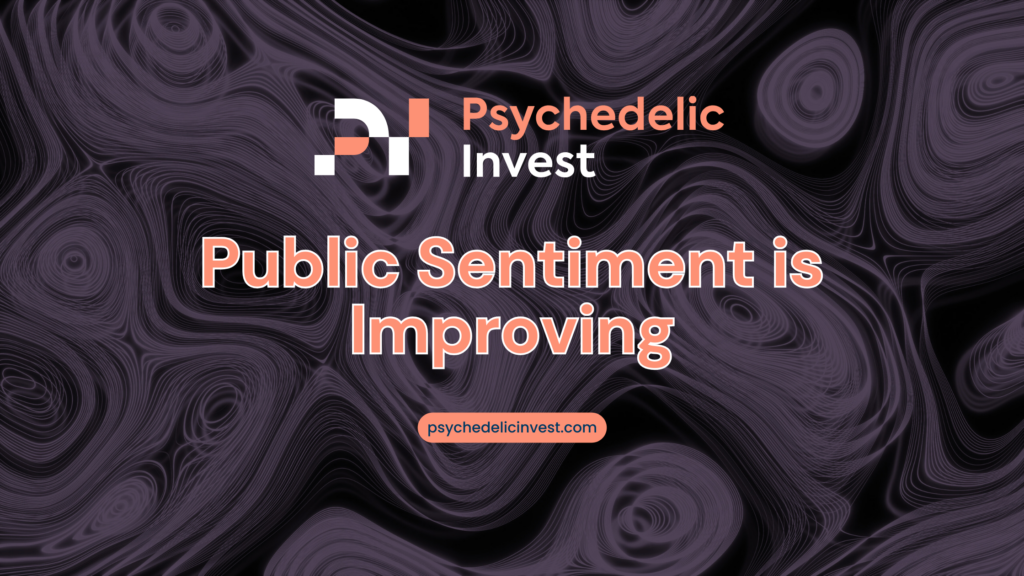Psychedelics
Survey Shows Public’s Growing Acceptance of Magic Mushrooms
In a landmark study on the “moral status” of psilocybin, nearly 9 out of 10 Americans have voiced their approval for the controlled, licensed use of…

In a landmark study on the “moral status” of psilocybin, nearly 9 out of 10 Americans have voiced their approval for the controlled, licensed use of this psychedelic to treat psychiatric conditions or to promote general well-being. This consensus emerges from a study that showcases an overwhelming bipartisan support for supervised psilocybin use, both for medical treatment (89%) and personal enhancement (85%), painting a picture of a society ready to embrace the therapeutic potential of psychedelics.
Broad-Based Bipartisan Support: Breaking Down the Numbers
The study, featured in the American Journal of Bioethics (AJOB) Neuroscience and conducted by researchers from prestigious institutions like Oxford, Yale, Johns Hopkins, and the University of Grenada, surveyed 795 individuals. The findings indicate a remarkably high approval across the political spectrum, with 91% of liberals and 86% of conservatives favoring treatment uses of psilocybin.
The research highlights the nuanced public perception towards psilocybin, emphasizing a slightly less but still substantial support for its use in enhancing well-being, with 89% of liberals and 78% of conservatives in favor.
The Path to Legalization: Oregon and Colorado Lead the Way
The study arrives at a critical juncture as states like Oregon and Colorado pioneer the legalization of supervised psilocybin use. These legislative moves, coupled with growing media coverage on psilocybin’s efficacy, have undoubtedly influenced public attitudes, underscoring the necessity of aligning policy-making with these evolving perceptions.
Survey Insights: The Moral Evaluation of Psilocybin Use
Participants were provided with factual information about psilocybin, including its non-addictive nature and medical safety in controlled settings. The moral approval of psilocybin use, both for treatment and personal enhancement, reflects a society that values individual autonomy and the potential benefits of psychedelics.
Notably, younger adults showed more support for psilocybin use than older generations, and liberals were more approving than conservatives. However, substantial majorities across political lines endorse psilocybin use, suggesting that federal legalization for supervised purposes could proceed without significant public backlash.
Navigating Expectations and the Psychedelic Renaissance
Despite the enthusiastic support for psilocybin, the study urges caution against precipitate policy changes, warning against inflated expectations. While psilocybin shows promise, it is not a panacea for mental health issues. The study cites a phase II clinical trial comparing psilocybin to escitalopram for major depressive disorder, which found no significant difference in primary endpoints. This underscores the importance of tempering optimism with rigorous scientific validation.
The Road Ahead: Public Acceptance and Policy Implications
As the psychedelic renaissance continues to unfold, the broad public support for supervised psilocybin use offers a hopeful prospect for the integration of psychedelics into mainstream therapeutic practices. This acceptance paves the way for legislative changes that could allow the controlled use of psychedelics for treatment and enhancement, aligning policy with public sentiment and scientific evidence.
In summary, the strong bipartisan support for psilocybin use in a controlled, licensed setting to treat psychiatric conditions or promote well-being reflects a significant shift in public attitudes towards psychedelics. This evolving consensus presents a unique opportunity to advance policy and research in a direction that embraces the therapeutic potential of psilocybin, potentially revolutionizing the treatment of mental health disorders and enhancing the well-being of individuals nationwide.

-

 Law & Regulation1 week ago
Law & Regulation1 week agoClearmind signs agreement with Hebrew University for psychedelic compound rights
-

 Psychedelics1 week ago
Psychedelics1 week agoCybin Announces Publication of Research Manuscript in the Journal of Medicinal Chemistry
-

 Psilocybin1 week ago
Psilocybin1 week agoCalifornia advances bill for psychedelics centers
-

 Psilocybin5 days ago
Psilocybin5 days agoPassover Perspectives: Psychedelics, Moses, and the Burning Bush
-

 Psychedelics1 week ago
Psychedelics1 week agoPsychedelics Can Offer More Than Therapy On Its Own
-

 Psychedelics1 week ago
Psychedelics1 week agoRevive Therapeutics Announces FDA Acceptance of Meeting Request for Long COVID Diagnostic Product
-

 Psychedelics4 days ago
Psychedelics4 days agoAlgernon NeuroScience and the Centre for Human Drug Research to Present DMT Phase 1 Stroke Clinical Data at the Interdisciplinary Conference on Psychedelic Research June 6 – 8th, 2024
-

 Psychedelics5 days ago
Psychedelics5 days agoRevive Therapeutics Announces Type C Meeting Request Granted by FDA for Clinical Study of Bucillamine to Treat Long COVID










